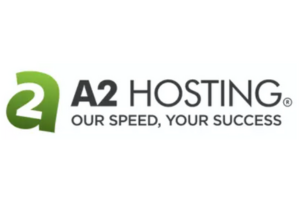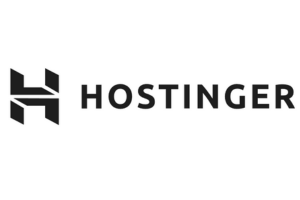In our review of shared hosting services for 2024, we looked at different shared hosting providers options that suit various needs.
One provider is great for being both cheap and dependable, making it perfect for small businesses and individuals.
Another stands out for its fast performance and helpful customer support.
We also found a service that’s flexible and scalable, ideal for growing businesses.
Additionally, there’s a hosting option optimized for speed and efficiency.
Lastly, there’s a budget-friendly choice with lots of features and solid support.
Overall, we considered factors like cost, reliability, speed, and scalability to help users pick the right shared hosting service for their needs.
Best Shared Hosting Services for 2024
| Image | Shared Hosting | Suitable For | View Plans |
|---|---|---|---|
 | HostGator |
| View Plans |
 | DreamHost |
| View Plans |
 | Ionos |
| View Plans |
 | A2 Hosting |
| View Plans |
 | Hostinger |
| View Plans |
Shared hosting is when your website shares space on a big computer with other websites. It’s the cheapest way to host a website, making it great for those on a budget.
However, you don’t have much control over the computer settings since the hosting company manages them. They take care of all the technical stuff, so you don’t need to be a computer expert.
While there’s a small risk of security issues because you’re sharing with others, good hosting companies have measures to protect you.
Sometimes, if other websites on the same server get busy, it can slow down your website a bit.
Shared hosting works well for small to medium-sized websites with regular traffic, but if your website gets super busy, you might need something more powerful like VPS Hosting.
Is HostGator Shared Hosting Best?
HostGator Shared Hosting is an excellent choice, especially considering its affordability.
With plans starting as low as $3.75 per month, you get unlimited storage, unmetered bandwidth, and even a free domain for the first year.
These plans come with essential features like WordPress pre-installation and malware scanning to ensure your website’s security and performance.
Plus, you can enjoy different levels of support, including chat, phone, and email assistance, depending on the plan you select.
Overall, HostGator Shared Hosting offers fantastic value for the cost, making it a top pick for hosting websites on a budget.
Pros
- Affordable pricing.
- Unlimited storage and bandwidth.
- User-friendly interface with pre-installed applications like WordPress.
- Free domain for the first year.
- 24/7 customer support availability.
Cons
- Performance may be affected by shared server resources.
- Limited control over server settings.
- Potential for slower loading times during peak traffic periods.
Is DreamHost Shared Hosting Best?
DreamHost Shared Hosting is a fantastic option for hosting your website. With easy setup and fast, reliable service, it’s great for beginners and experienced users alike.
Plus, they offer a 30-day money-back guarantee, so you can try it risk-free. With plans starting at just $2.59 per month, you get features like 1-click WordPress installation, free domain, and unlimited traffic.
Whether you’re just starting out or need hosting for multiple websites, DreamHost has you covered with their Shared Hosting plans.
Pros
- Easy setup with 1-click WordPress installation.
- Fast, reliable, and secure hosting service.
- 30-day money-back guarantee for risk-free trial.
- Affordable pricing starting at $2.59 per month.
- Free domain included with both plans.
- Unlimited traffic and SSD storage.
- Options for unlimited websites and email accounts.
Cons
- Extra charges for email hosting and add-ons possible.
- Limited advanced features compared to rivals.
- Some users may desire greater control over server settings.
Is Ionos Shared Hosting Best?
Whether Ionos Shared Hosting is the best depends on what you’re looking for. They offer different plans with features like scalability and reliable support. But the right choice depends on your budget and specific needs.
Ionos Shared Hosting offers different plans with features like scalability and reliable support.
Pros
- Scalable plans suitable for different website needs.
- Reliable hosting with a 99.9% uptime guarantee.
- Professional customer support available.
- User-friendly tools for easy setup and management.
Cons
- Limited customization compared to other hosting options.
Pricing might not be the most affordable for budget-conscious users.
Additional features may come with extra costs.
Is A2 Hosting Shared Hosting Best?
A2 Hosting Shared Hosting is the best option depends on individual needs and preferences.
A2 Hosting offers fast and affordable plans with features like SSD storage, free site migration, and a money-back guarantee.
However, whether it’s the best choice depends on factors such as pricing, specific hosting needs, and desired features.
Pros
- Competitive pricing starting at $2.99/month.
- Offers various plans suitable for different website needs.
- SSD storage for faster performance.
- Free site migration and automatic backups included.
- Money-back guarantee for customer satisfaction.
Cons
- Pricing increases after the initial promotional period.
- Some advanced features like Turbo Boost and Turbo Max are available at higher price points.
- Limited resource allocation compared to higher-tier hosting options.
Is Hostinger Shared Hosting Best?
Whether Hostinger Shared Hosting is the best option depends on your specific needs and preferences.
Hostinger offers affordable shared hosting plans with features like SSD storage, free SSL certificate, and a user-friendly control panel.
However, whether it’s the best choice for you depends on factors such as pricing, website requirements, customer support quality, and other features offered by competitors.
Pros
- Affordable pricing
- Free SSL.
- SSD storage for faster website performance.
- User-friendly control panel.
- 24/7 customer support.
Cons
- Limited resources and data center locations.
- Price increases after promotional period.
- Some advanced features may be lacking.
What is Shared Hosting?
Shared hosting is a type of web hosting service where multiple websites are hosted on a single physical server.
In this setup, resources such as CPU, RAM, and disk space are shared among all the websites hosted on that server.
Each website typically has its own domain name and operates independently of the others, but they all utilize the same server resources.
Shared hosting is often the most economical option for hosting websites because the cost of operating and maintaining the server is divided among the various users.
It’s suitable for small to medium-sized websites with moderate traffic, personal websites, blogs, and small businesses that do not require dedicated server resources.
However, since resources are shared, the performance of your website can be affected by the activity of other websites hosted on the same server.
If one website experiences a sudden spike in traffic or consumes excessive resources, it can impact the performance of other websites on the server.
Additionally, customization options and control over server settings are often limited in shared hosting environments compared to dedicated or VPS (Virtual Private Server) hosting.
Is Shared Hosting Good?
Yes, shared hosting can be good for individuals and small businesses with limited budgets and modest website needs.
However, it may not be suitable for everyone due to potential limitations on resources, customization options, and security risks associated with sharing server space with other websites.
Choose the List of 5 Best Shared Hosting Providers, it will help your website to grow and handle it better than any shared hosting.
What Is the Difference Between Shared Hosting vs WordPress Hosting?
Shared hosting and WordPress hosting are both types of web hosting services, but they serve different purposes and cater to different needs.
Shared hosting involves multiple websites sharing the resources of a single server and is a general-purpose hosting solution suitable for various website platforms, including WordPress.
It’s cost-effective and ideal for small to medium-sized websites with moderate traffic. Conversely, WordPress hosting is specifically optimized for hosting WordPress websites.
It offers features like one-click WordPress installation, automatic updates, and specialized customer support trained in WordPress.
While it may cost slightly more than shared hosting, WordPress hosting provides optimizations tailored to enhance the performance and security of WordPress sites, making it a preferred choice for many WordPress website owners.
What Is the Difference Between Shared Hosting vs Dedicated Hosting?
Shared hosting and dedicated hosting are two distinct types of web hosting services, each offering unique benefits and catering to different needs.
Shared hosting entails multiple websites sharing resources on a single server, making it an affordable option suitable for individuals and small businesses with limited budgets.
However, due to resource sharing, the performance of websites can be affected by others on the same server, and customization options may be limited.
In contrast, dedicated hosting provides users with their own dedicated server, offering exclusive access to resources and greater control over server settings.
This results in enhanced performance, reliability, and security but comes at a higher cost and requires more technical expertise to manage effectively.
Overall, the key difference lies in resource allocation and control, with shared hosting emphasizing affordability and convenience, while dedicated hosting prioritizes performance and customization.
What Is the Difference Between Shared Hosting vs Cloud Hosting?
Shared hosting and cloud hosting represent two distinct approaches to web hosting, each with its own set of characteristics and benefits.
Shared hosting entails multiple websites sharing resources on a single physical server, making it an economical choice, particularly suitable for individuals and small businesses with budget constraints.
However, since resources are shared, the performance of websites can be affected by others on the same server, and customization options may be limited.
Conversely, cloud hosting operates on a network of virtual servers, offering greater scalability, flexibility, and reliability compared to traditional shared hosting.
Resources are distributed across multiple servers, allowing users to scale resources up or down as needed, resulting in better performance and uptime.
Additionally, users have more control over their server configurations and can tailor their hosting environment to suit their specific requirements.
While shared hosting emphasizes affordability, cloud hosting prioritizes scalability, flexibility, and control, albeit potentially at a higher cost.





